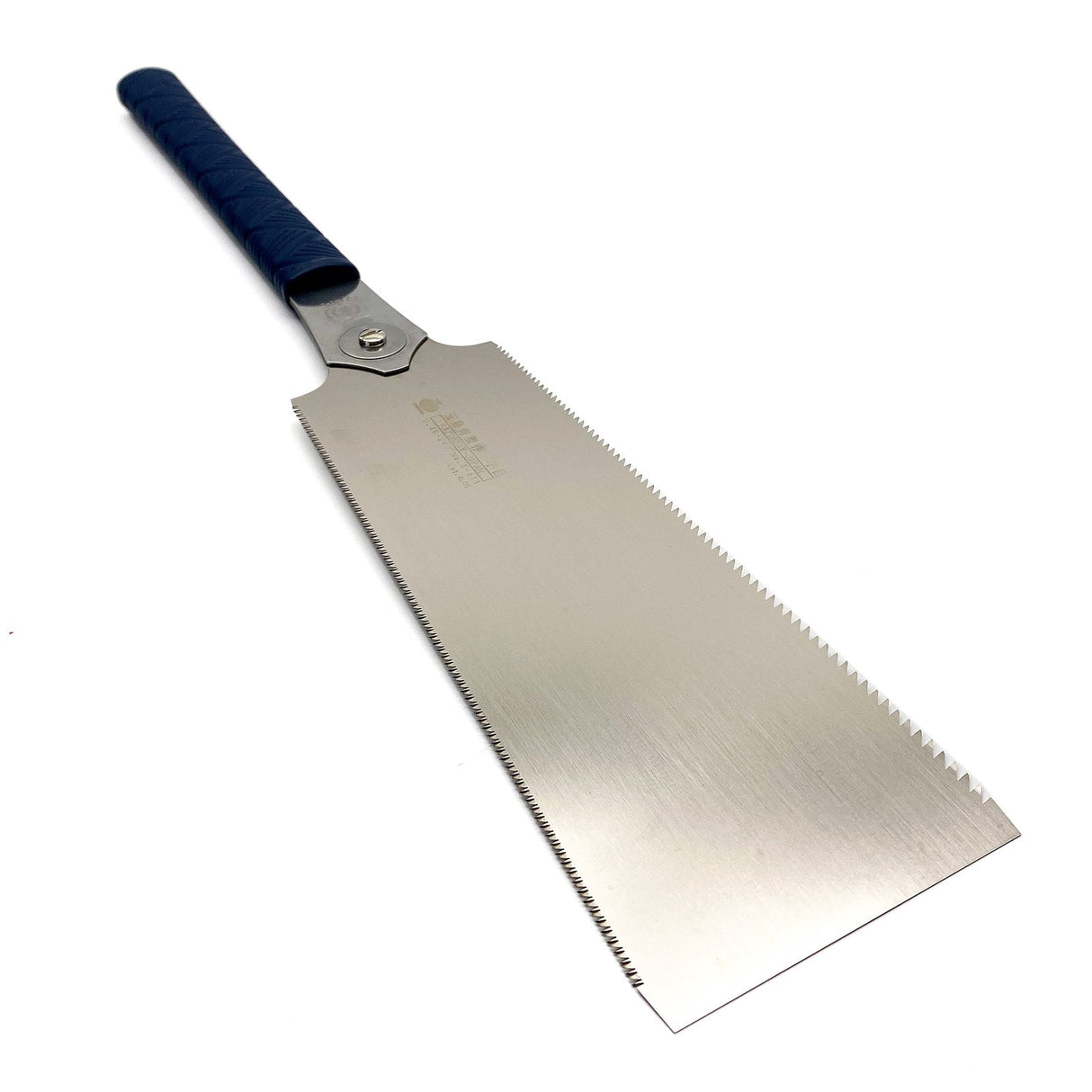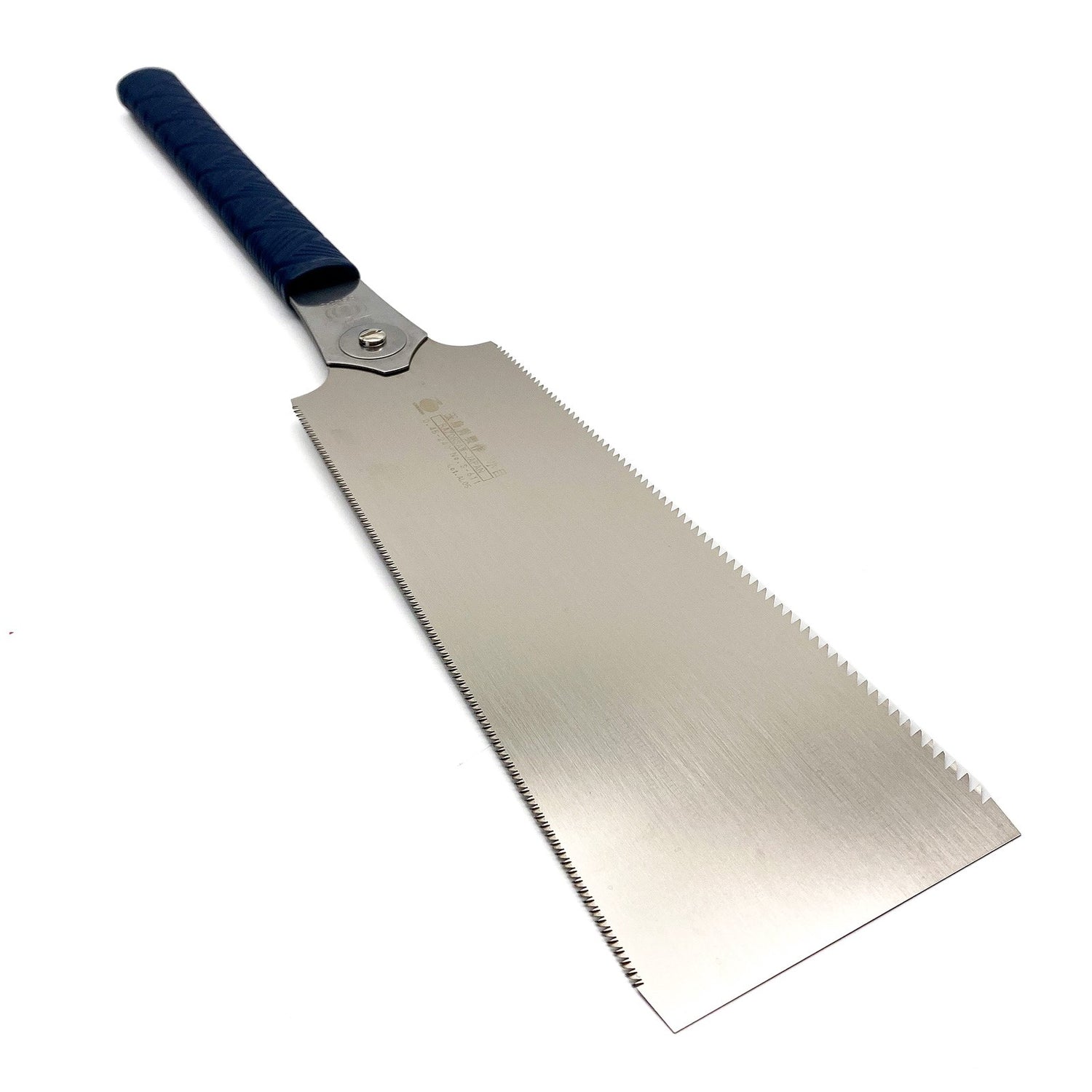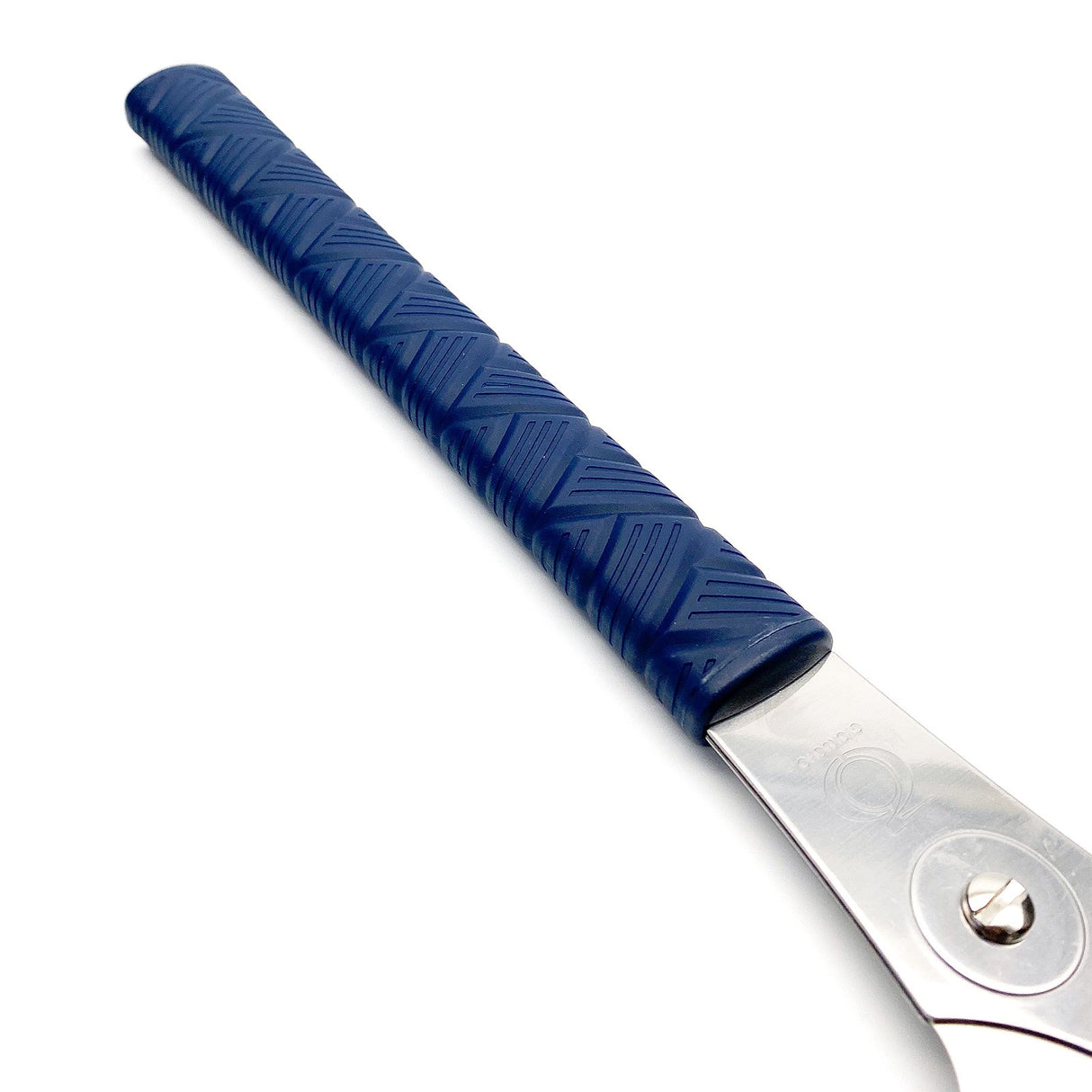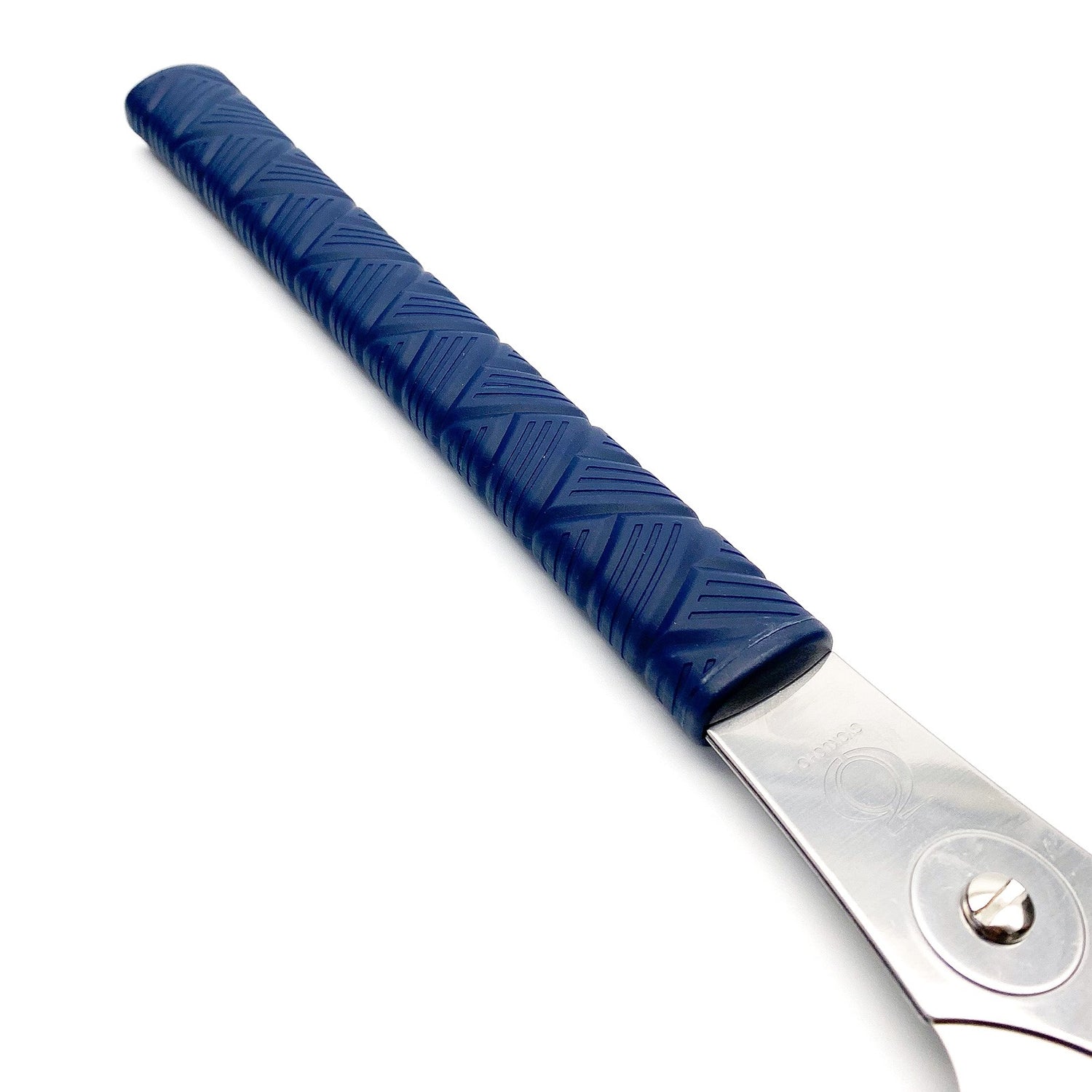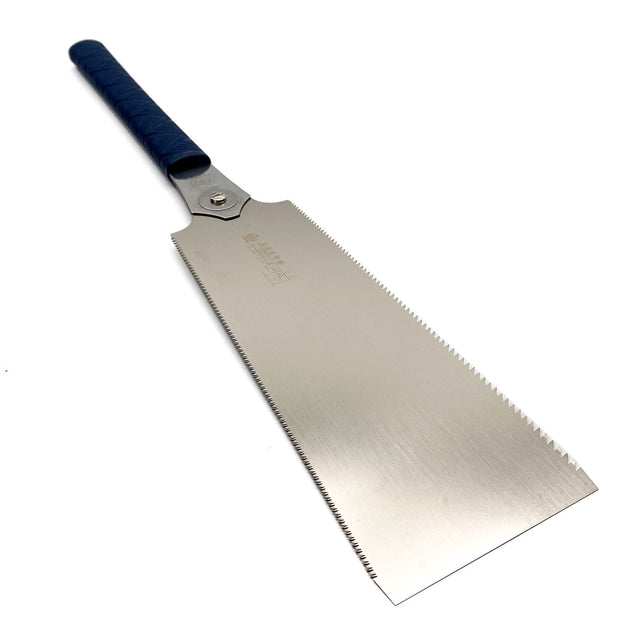Razorsaw Ryoba Japanese Saw 240mm Blade Rip Cut & Crosscut TPE Handle
Sale ends in:
Razorsaw Ryoba Japanese Saw 240mm Blade Rip Cut & Crosscut TPE Handle is backordered and will ship as soon as it is back in stock.
Request Further Information
Razorsaw Ryoba Japanese Saw 240mm Blade Rip Cut & Crosscut TPE Handle
![]() Eligible for FREE Shipping*
Eligible for FREE Shipping*
A dual sided general purpose Japanese saw with rip cutting teeth on one side and crosscutting teeth on the otherside.
Gyokucho razorsaws, the original replaceable blade Japanese saws, have long been renowned for their cutting efficiency and excellent durability. The latest generation of Gyokucho saws have blue handles made from TPE (thermoplatic elastomer) a remarkable material that is simultaneously hard and resilient yet feels velvety to the touch and affords a superb grip.
Seiunsaku are the standard ryoba for carpentry and joinery work, the angle between the centreline and the toothline is carefully calculated to give a rapid yet smooth cut and the heat treatment is optimised for springiness, ie the degree to which the blade can be distorted and still return to its original shape. This version has extra fine 'Komame' teeth, making it suitable for smaller workpieces - skirting, architrave, joinery, furniture making etc.
The blades of Gyokucho saws are treated using a process called electroless nickel plating, this has three functions. Firstly, it protects the blade against corrosion, secondly it provides a nice shiny mirror surface so you can gauge your cutting angles, and thirdly its low friction properties inhibit resins and sap from building up on the blade - anything that does manage to get stuck to them can easily be washed off with warm soapy water. The teeth are differentially impulse hardened, one by one, bringing the outer surfaces to RC68 or more whilst still leaving the 'root' of the tooth soft and therefore much less prone to fracture - not unlike tiny Japanese sword blades. They are equally happy working in softwoods or temperate hard woods and can, with care and a light touch, be used on exotic timbers too.
- Blade length 240mm
- Overall length 560mm
- Blade thickness 0.45.mm
- Pitch 1.3mm / 19.5tpi XC
- Pitch 3.8-2.4mm / 6.7-10.6tpi XC
- Set 0.125mm per side
- Max depth of cut = unlimited
- TPE handle
- Replacement blade = RSS-611

